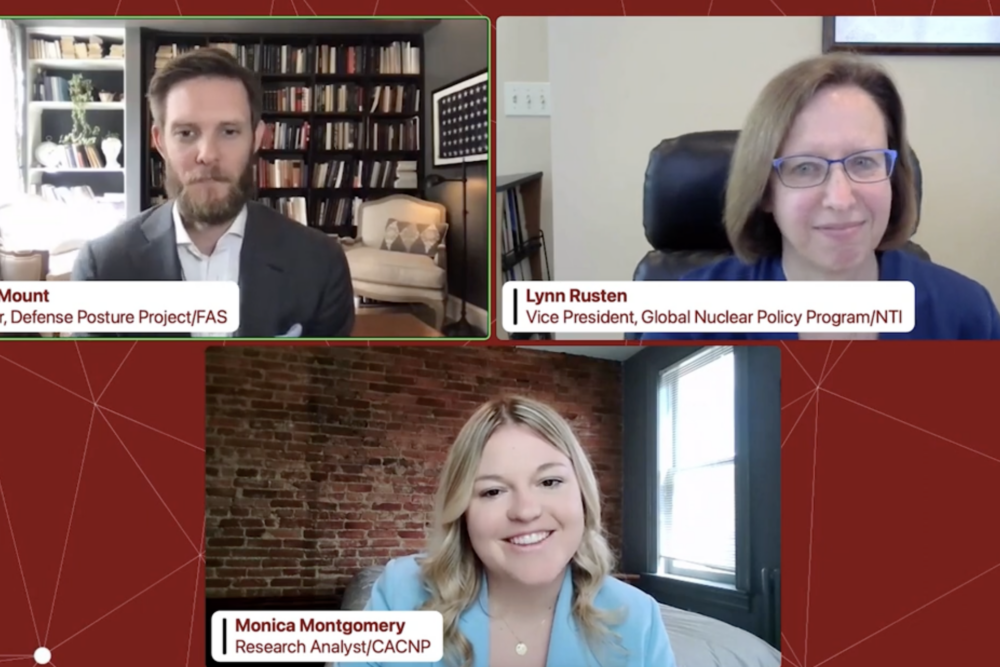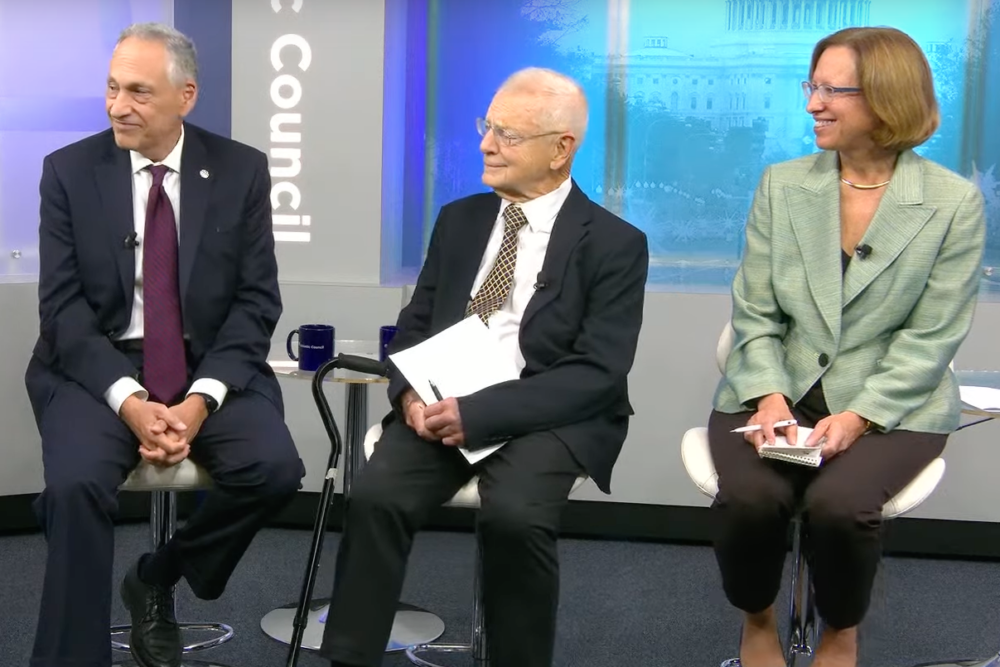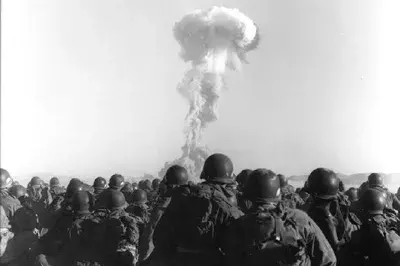
Lia Sokol
Intern, Global Nuclear Policy Program
Atomic Pulse
Lynn Rusten, vice president of the Global Nuclear Policy Program at the Nuclear Threat Initiative, joined Adam Mount, senior fellow and director of the Defense Posture Project at the Federation of American Scientists, for a Bulletin of Atomic Scientists panel discussion of the Biden administration’s emerging nuclear policy. The April 28 panel, moderated by Monica Montgomery of the Center for Arms Control and Non-Proliferation, focused on the forthcoming Nuclear Posture Review (NPR), the president’s budget request, and the impact of the war in Ukraine on U.S. nuclear policy.
On March 28, the White House announced that it had transmitted the classified version of its National Defense Strategy (NDS) and Nuclear Posture Review (NPR) to Congress and released brief unclassified statements about them. That same day, the Biden administration also released its budget request for Fiscal Year 2023. These documents offer a roadmap for the administration’s nuclear and defense policy during a time of increasing challenges on the global stage.
The Nuclear Posture Review
Although the NPR, which details the administration’s approach to nuclear weapons policy, has yet to be released publicly, Rusten summarized what is known so far, saying that the review “will reflect a lot of continuity with the past” but “will also have some very different changes in terms of its overall tone and some specific policies.” She said it will mirror the Obama administration’s NPR more closely than that of the Trump administration.
Within the NPR, Rusten said, there likely will be a return to emphasis on strategic stability and U.S. leadership in non-proliferation and arms control, as well as a recommitment to the long-term goal of disarmament. The NPR also cancels the proposed Nuclear-Armed Sea-Launched Cruise Missile (SLCM-N) and returns to an Obama-era plan to retire the B83 nuclear bomb, the largest weapon in the U.S. nuclear arsenal and one that many analysts believe is unnecessary in the modern era. Mount agreed with Rusten’s assessment, while noting that the changes from the previous administration were likely to lead to partisan contest.
Goodbye Sole Purpose?
Another contentious issue is President Biden’s campaign commitment to a “sole purpose” declaration—a policy that states that the sole purpose of U.S. nuclear weapons is to deter nuclear attack. This would clarify U.S. nuclear deterrence policy by, in theory, narrowing the contingencies when U.S. nuclear weapons would be used. Yet, in practice, implementing this change to declaratory policy would be “extremely difficult,” Mount said, and would require serious consideration of the mission and strategy of nuclear and non-nuclear capabilities, particularly given resistance to “sole purpose” within the U.S. government. U.S. allies and partners also reportedly expressed opposition to this policy change and have lobbied the Biden administration not to change U.S. policy. “It’s clear that there was a lot of discomfort expressed by many allies in terms of a change in declaratory policy towards sole purpose,” said Rusten.
Regardless, Rusten observed, although Biden may be the most “knowledgeable and committed president in terms of understanding nuclear policy,” implementing sole purpose does not appear to be at the forefront of his priorities, given other pressing issues such as the pandemic, domestic policy, the war in Ukraine, and a divided Congress.
The War in Ukraine and U.S. Nuclear Deterrence
The panel also addressed how the war in Ukraine is affecting the Biden administration’s nuclear policy. The NDS, NPR, and Missile Defense Review (MDR) were drafted initially with a heavy focus on China, characterized by the administration as the “pacing” strategic challenge for the United States and a growing actor in the nuclear field. But following its invasion of Ukraine, Russia will now loom larger in these policies, Rusten and Mount said. It will be a challenge to get back to productive strategic stability dialogue with Russia, although administration officials have made it clear that there is still interest for this, if possible, in the future.
Mount lauded the Biden administration’s discipline in not following Russian President Vladimir Putin into “nuclear brinkmanship.” However, the speakers agreed that the ongoing Ukraine crisis will affect the outlook for administration policy in Congress, where divides already have emerged over issues like cancelling the SLCM-N and B83. Rusten highlighted that this is an important time to educate and increase “nuclear literacy,” both for policymakers and the public.
During the audience Q&A portion of the event, speakers were asked whether nuclear parity—having the same number of nuclear weapons as its nuclear competitors—is a goal for the Biden administration. Rusten explained that as China’s nuclear forces come closer to the levels of those of Russia and the U.S., rough, but not precise, parity may be an implicit, if not overtly stated, goal. Mount agreed but pointing to comments made by former U.S. Secretary of Defense William J. Perry, he suggested that meeting our deterrence objectives rather than achieving parity should be the aim.
The event ended on a note of caution. The consequences of nuclear deterrence breaking down “are catastrophic,” Rusten said, noting competing security perceptions from Russia, China, and other countries. “We need to get back on the track of erecting guardrails” to limit and reduce nuclear weapons threats, she said, emphasizing the importance of bounding them through mutual agreements rather than military responses.
Watch the BAS seminar below or here.
Sign up for our newsletter to get the latest on nuclear and biological threats.
Lynn Rusten, vice president of NTI’s Global Nuclear Policy Program, shares her reaction to the 2023 Strategic Posture Report during a panel event at the Atlantic Council.
There is no noise at first, only a flash so bright that the soldiers see their own bones and blood vessels through their skin, as if they have x-ray vision.



